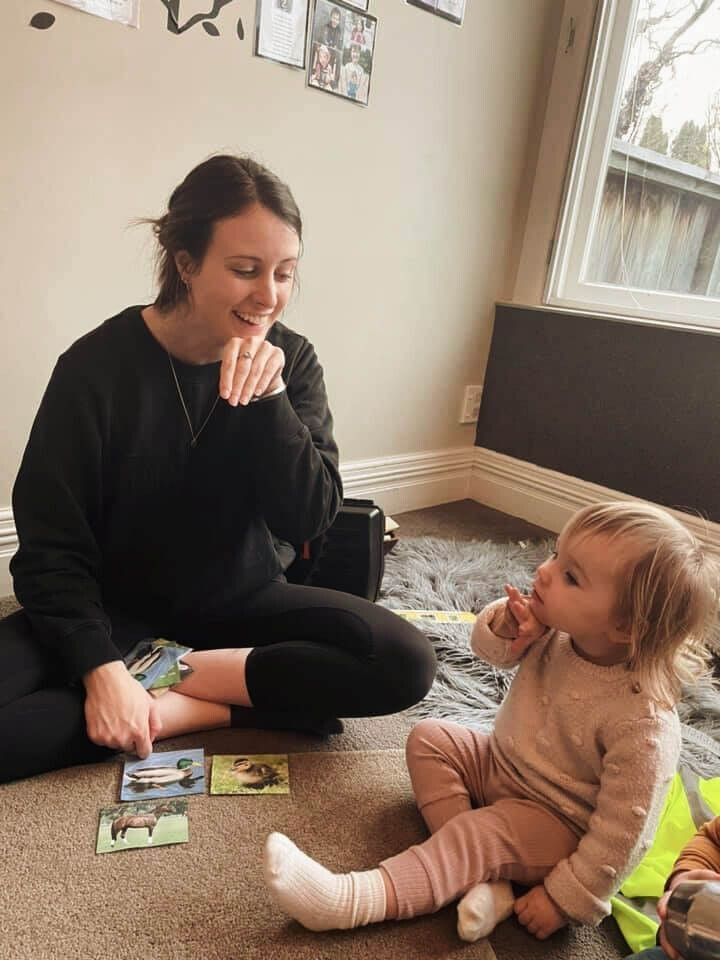Our Curriculum
Te Whāriki
The National Curriculum for Early Childhood Education is Te Whāriki, with the desired outcome of empowering children to learn and grow in a holistic way through developing children’s sense of well-being, belonging, contribution, communication and exploration skills in a safe and secure environment. Our educarers have a sound understanding of this important guiding document, that we use as a guide to ensure we are providing successful learning outcomes for all children.
RIE (Resources for Infant Educarers)
RIE was founded by Magda Gerber, who is a huge advocate for respect and freedom of movement for infants and toddlers. Magda Gerber believes that educarers must have respect for infants and trust that they are natural inventors, explorers, and self-learners. She believes that we should speak to infants and toddlers in a way that opens them up to the world around them and supports them to become active participants in their own learning, development and lives. By allowing children to learn and explore independently, this creates extremely valuable opportunities for them. This philosophy and way of supporting children is widely encouraged throughout our relationships and provides unique opportunities through respectful and nurturing interactions.
“Parents and educarers must respect an infant’s ability to learn and develop naturally and give them ample opportunity to do so”
Magda Gerber
The basic principles for the RIE approach that we follow are:
1. Trust in the child to be an explore and self-learner - our educarers are able to sit back and
observe the children as they explore and learn in their own ways with the resources available to them.
2. Time for uninterrupted play - as educarers, we ensure that children are shown respect by not disturbing a child’s play and exploration, unless necessary.
3. Freedom to explore and interact with other infants and toddlers - supporting children’s
emotional and social competence as they learn to interact and form relationships with others.
4. Constant observations of the child in order to be able to understand their needs - Having key/primary caregivers for each child allows them to observe and get to know the child through a strong reciprocal relationship with allows educarers to understand and meet their needs and wants.
5. An environment that is physically safe, cognitively challenging and emotional nurturing through care moments that allows the child to be an active participant - our educarers create an exciting, aesthetically pleasing and challenging environment where our resources have purpose and are rotated to meet the children’s needs and emerging interests.
Environment
We pride ourselves in our homely, children proportioned and prepared environment, designed for the children to take control of their own learning with natural materials and selected key pieces of Montessori equipment that encourage children to learn and discover the world around them at their own pace. Children have the freedom to choose materials, activities and experiences that inspire them to learn as they develop respect for themselves, others and the environment. Our outdoor spaces are open and create lots of opportunities for freedom of movement, surrounded by natural climbing equipment and different terrains to explore.
Primary Caregiving
Each infant, toddler and child will have a Primary Caregiver while attending Learning Curves. Having a strong meaningful relationship with a primary caregiver provides continuity for children and parents whilst supporting your child to feel safe and secure in their new environment. This then allows your child to develop the confidence to form relationships with children and other staff members, and freely explore the environment. Teachers work together as a team to provide for the whole group, keeping the environment calm while being primarily responsible for meeting the needs of their key children. Telling each child what we are doing before it happens ensures consistency and predictability is maintained and gives the opportunity for children to build an attachment and feel safe and secure with all teachers in the environment.
“When you hold a child, hold them not just with your body, but with your mind and heart”
Magda Gerber
A Primary Caregiver will usually take responsibility for:
Creating and building strong, meaningful relationships and interactions with you and your child during visiting/settling sessions, creating a partnership with one another.
Introducing a secondary caregiver once your child is feeling safe, settled and secure in his/ her new environment.
Creating and providing a routine for your child which reflects and supports their routine in the home environment.
Care moments such as nappy changing, feeding and sleep times are treated as quality learning opportunities.
Providing a communication book for children up to the age of 1 which provides a daily record of care moments and routines such as sleeps, nappy changes and bottle times.
Communicating clearly to all staff members and passing on valuable information about your child.
Supporting and extending on children’s individual interests through planning, documentation and learning stories.
Programme
Our centre is divided into four rooms that are named after surrounding streets:
Pentire - 0-2 years
Zabeel - 2-3 years
O’Reilly - 3-6 years
Flemington - 3-6 years
Our programme supports children to have the freedom to achieve as we believe that “play is the work of the child” (Maria Montessori). It is when children have these opportunities that they develop a love for being life-long learners and active participants in their lives. Instead of teaching, we support and guide children alongside their learning journeys, recognising and following their sensitive periods and interests that emerge whilst discovering the world around them. Our programme offers children the choice of working alone or alongside others as they develop independence and social competence in their learning environment.

Tactile and sensory experiences
Fine and gross motor activities and resources
Story times and rhymes
Music, movement and instruments
Messy play such as slime, water and sand
Group activities and individual one-on-one interaction and care moments
Outside play in a natural and challenging environment
Exploring art and craft activities through various mediums